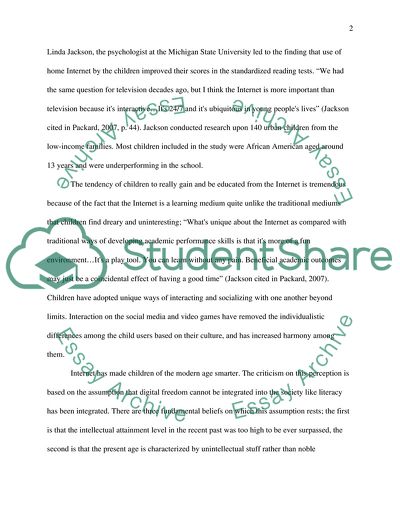Cite this document
(Are Children Smarter or More Socialized Because of the Internet Research Paper, n.d.)
Are Children Smarter or More Socialized Because of the Internet Research Paper. https://studentshare.org/health-sciences-medicine/1800609-are-children-smarter-or-more-socialized-becuase-of-the-internet
Are Children Smarter or More Socialized Because of the Internet Research Paper. https://studentshare.org/health-sciences-medicine/1800609-are-children-smarter-or-more-socialized-becuase-of-the-internet
(Are Children Smarter or More Socialized Because of the Internet Research Paper)
Are Children Smarter or More Socialized Because of the Internet Research Paper. https://studentshare.org/health-sciences-medicine/1800609-are-children-smarter-or-more-socialized-becuase-of-the-internet.
Are Children Smarter or More Socialized Because of the Internet Research Paper. https://studentshare.org/health-sciences-medicine/1800609-are-children-smarter-or-more-socialized-becuase-of-the-internet.
“Are Children Smarter or More Socialized Because of the Internet Research Paper”. https://studentshare.org/health-sciences-medicine/1800609-are-children-smarter-or-more-socialized-becuase-of-the-internet.


